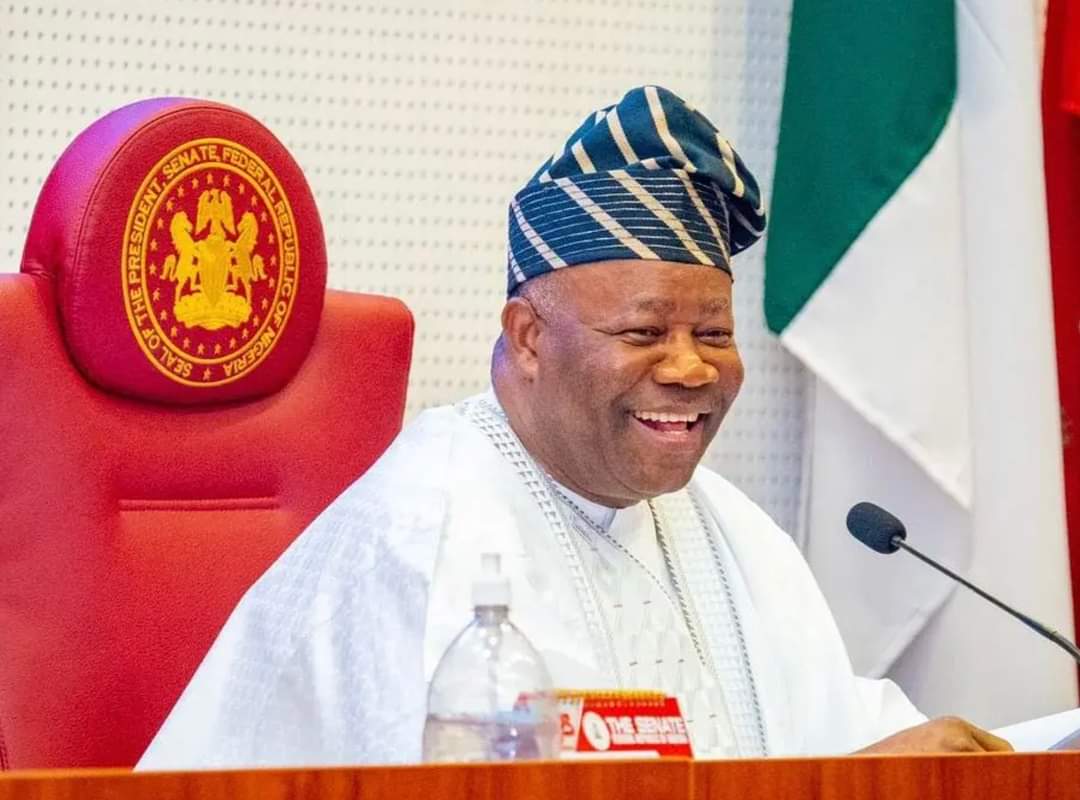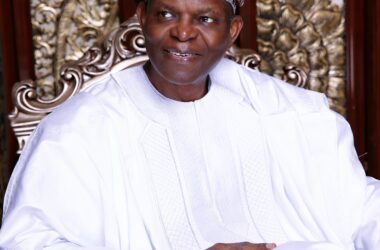A few years ago in the United States of America, at the height of former President Donald Trump’s impeachment saga, the then-Speaker of the US House of Representatives, Rep. Nancy Pelosi said, “When our Founding Fathers were fashioning out our Constitution, they knew, even back then, that one day in the future, we might have a rogue President. What they couldn’t have foreseen, however, was the possibility that we might one day also have a rogue Congress (parliament).’
Even as Nigerian President Bola Ahmed Tinubu and his administration grapple with the multifaceted challenges confronting the country and its people, there are already concerns about whether the recently inaugurated 10th National Assembly will be on the same page, policy and development-wise (without necessarily becoming a rubber-stamp of the executive arm) and whether it will better the lacklustre record of its Ahmed Lawan- and Femi Gbajabiamila-led predecessor.
The signs don’t look very good.
True, the Senate, in particular, is now under the leadership of Senator Godswill Obot Akpabio (a man for whose name the adjective ‘uncommon’ was once a synonym during his tenure as Governor of Akwa Ibom State). It also comprises of quite a constellation of some of the most accomplished Nigerians alive. But there are those who would say (as did former Rivers State Governor Nyesom Wike, in his blunt style, a year or so ago) that since Akpabio left the gubernatorial seat in Uyo in 2015, his performance in subsequent roles (Senator and Minister of Niger Delta Affairs, to name the two most prominent ones) has been far from uncommon. Since he became Senate President, there are those who have been wondering which Akpabio Nigerians are likely to see this time around – the uncommon Governor, or the more common holder of public officer. Since the National Assembly in the current dispensation is, more often than not, a reflection of its leader (as we saw during the tenure of Sen. Lawan) Nigerians are wondering if they are in for a rollercoaster of motion without movement, of levity masquerading as profound gravity, and of small potatoes presented as landmark legislative accomplishments, etc.
The Americans like to say that a ‘gaffe’ is what happens when a politician ‘accidentally’ tells the truth. Politicians, like lawyers, are extremely guarded when speaking in public – especially on sensitive topics. Sometimes it is only in their less-guarded moments that the publc gets to learn the truth, or at least the inner workings of their minds. Or, as the Bible puts it, it is out of the abundance of the heart that the mouth speaketh.
It is in that sense that Nigerians have expressed their shock and dismay over the utterances and general conduct of the Senate President – especially in the aftermath of President Tinubu’s palliative measures aimed at cushioning the adverse impact of the fuel subsidy removal on Nigerian households. Since those measures, the slogan ‘Let the poor breathe,’ has trended over the social media space.
Those words were uttered in angry (or more like mournful) protest at the way things are in today’s Nigeria. They were uttered as a denunciation of the ways in which our economy seems to have steadily impoverished the majority of our people – to the point where Nigeria is ranked as the epicenter of global poverty, with more people in extreme penury than any other country in the world. Those words were uttered in a humble appeal (to God, to the powers that be, to government, to the rich, famous and fortunate in society) to make a little space so that the less privileged can also see the sky.
To make light of those words, to take them out of their natural meaning in order to present a diametrically opposed position, is a clear demonstration of insensitivity to the plight of the masses. And that is what Sen. Akpabio, and by extension his colleagues in the nation’s upper legislative chambers are guilty of. As if their action in approving the whopping sum of N70b for themselves (for the purchase of brand-new SUVs) – at a time when the generality of our people are lamenting the effect of the removal of subsidy and questioning the wisdom behind the N8k sum per month for 12 million households – was not bad enough, the Senate President had the temerity to utter that slogan (in reference to himself and his colleagues) amidst mirthless laughter. At a time when workers (under the aegis of the Nigeria Labour Congress ) are on the warpath against what they see as an ‘anti-people’ government policy, and planning to stage a potentially crippling strike that an already comatose economy doesn’t need right now, the Senate leadership and membership – a house full of rich fat cats – is complaining that N70b was a paltry sum relative to their needs, and laughingly repeating a slogan of agony.
At a time when a motion to remonstrate with the NLC in a bid to persuade it to hold action on its threatened strike is still pending on the floor of the Senate, Akpabio and his co-travelers are spending an inordinate amount of time bickering over their jumbo salaries and other entitlements – never mind the fact that the Senate is yet to consider Pres. Tinubu’s proposal for the review of the current minimum wage for workers.
Perhaps a better slogan for these insensitive fat cats – instead of ‘Let the poor breathe, ‘ should be an Oliver Twistian ‘We Want More, and More and More, ‘ or something of that nature. That would be a more accurate description of the disposition of the Akpabio-led Senate at this point in time. To hell with the masses – workers, market women, youths and all. We’re not here to make them happy. We’re here to ‘hammer’ and go.
To be sure, President Tinubu has also mouthed words to that effect – in relation to his proposed palliatives and other interventions. But it is clear, from the context in which he said, ‘Let the poor breathe’ that it was with the best of intentions – as sincerely meant as High Chief Bassey Ekpo Bassey’s popular campaign slogan back in the day, when he ran successfully for the Chairmanship of Calabar Municipal LGA in Cross River State: ‘Make Poor Man Follow Chop.’ The support and buy-in that slogan, and the sentiment it conveyed among the majority of the electorate in that election generated – along with Bassey’s reputation as a crusading journalist, a fervent social activist and an advocate of the down-trodden in spite of his pedigree as a Prince of one of the ruling houses in Old Calabar – propelled him to the Chairman’s office, and into the history books as perhaps the best LG Chairman in the history of Cross River State, if not of Nigeria. The rest, in terms of his administration’s impact on the fortunes of the less-privileged, is now history.
Obviously, the importance of optics and their role in shaping public perception – for good or ill – is totally lost on Senator Akpabio and his colleagues. Either they do not understand the significance of positive symbolism, or they have completely forgotten about it in the euphoria of their new-found positions and the perks and privileges that come with them. If so, it is the duty of the President as well as other critical stakeholders in the polity to remind them, for the good of the present administration and our political dispensation. Attitudes reminiscent of a totally destructive and discredited old order must not be allowed to flourish at this point in our life as a nation. The ‘I-don-hammer’ or ‘I-have-arrived’ mentality that Akpabio and his colleagues seem to be projecting, going forward, must be denounced in the strongest terms by all concerned (including, and especially, the President). The attitude that cannot even pretend to care about the need for frugality in the face of our present socio-economic realities has no place whatsoever in our present political culture. The attitude that – rather than show empathy for the masses and the hell that they are going through right now – would rather make mockery of them by laughingly and selfishly appropriating a pro-people slogan in a most cynical fashion, should be condemned in the strongest of terms. It makes no sense for the Presidency to claim that it retrieved a large chunk of the nation’s patrimony from the clutches of a fuel subsidy cabal – only to hand same to an over-pampered set of self-indulgent lawmakers.
As shown in his most recent presidential address, Asiwaju Tinubu has demonstrated his understanding of the importance of managing positive perceptions to gain and sustain public support and buy-in. We suggest that the lawmakers borrow a leaf from his example – or better still, from that of the afore-mentioned High Chief Bassey (who was, above all, a master of perception management, both in style and substance).
More importantly – even though it has become a rather meaningless cliche of late – our political leaders, from all arms of government, must recognize that the need to cut the cost of governance has, at this point, become an urgent, indeed an existential, imperative without which our economy and our still-fledgling experiment in democratic governance will not survive. During the 2023 elections, some candidates gave it some airtime, pledging to initiative the requisite constitutional amendments to ensure, among other measures, a reduction in the take-home pay, allowances and other entitlements of political office-holders, and so forth. Others proposed making the lawmaker’s office a part-time job, while yet others went as far as calling for the dissolution of the Senate altogether, on the grounds that at this stage of her development, Nigeria does not need a bicameral national legislature. And so forth.
If there is a time to implement these proposals, it is now. Our leaders must muster the necessary political will to make these changes for the health of the polity as well as the present welfare and future security of our people and generations unborn.
They mustn’t restrict themselves to slogans – whether well meant, like Bassey’s ‘Make Poor Man Follow Chop‘, or Akpabio’s cynical ‘Let the Poor Breathe ha ha ha.‘ Slogans are all well and good, but let’s not forget the tragic saga of Marie Antoinette, Queen of France in the late 18th century, who, when told that the poor people can longer eat bread (the cheapest staple food at the time) replied, “Let them eat cake.” That infamous response has now become a slogan in France to the present day, but at the time, it cost Marie Antoinette her head and that of her husband, King Louis XIV, and triggered the bloody events of the French Revolution.
If our leaders do not learn the lessons of history, then they are bound to repeat it.






